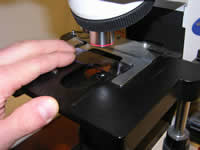What is Skin Cancer?

There are many different types of skin cancer although the most common are basal cell carcinoma (BCC's), squamous cell carcinoma (SCC's) and melanoma. BCC's and SCC's are non-melanoma skin cancers, or NMSC's and approximately 1 million new cases are diagnosed each year. BCC's tend to be slow growing, and only rarely do they spread or metastasize. They are cancers however and if left untreated they will slowly destroy healthy tissue and vital structures. SCC's have a higher tendency to metastasize although it is still uncommon. In general, if recognized early by a board-certified dermatologist and treated appropriately, these cancers do not adversely affect one's health. It is important however to seek a board-certified dermatologist and preferably a properly trained Mohs surgeon as optimal treatment depends upon a thorough knowledge of not only the types of skin cancer, but the behavior of the myriad of subtypes as well.
Melanoma
Melanoma tends to be a more serious diagnosis as it has a high tendency to spread throughout the body and is very difficult to treat. The outcome depends in large part on the depth of invasion of the cancer-how far down into the skin it's invaded. Superficial melanoma, diagnosed early and treated with appropriate surgical margins has a very high cure rate. 5-year survival rates are better than 98%. As a melanoma grows deeper, the liklihood that it has or will metastasize elsewhere in the body increases and it becomes very hard to treat. Unlike other forms of cancer, melanoma is very difficult to kill with current chemotherapeutics or radiation. Experimental modalities such as 'vaccines' are being investigated but as of yet have not shown dramatic success. A procedure called "sentinel lymph node biopsy" is advocated by some melanoma specialists but it has never been shown convincingly to improve survival.
